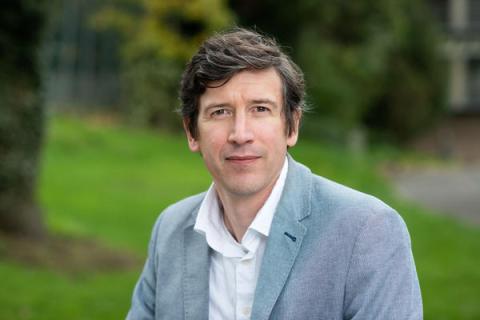The Oxford AMR Network and the Ineos Oxford Institute for antimicrobial research have awarded ten Knowledge Exchange grants to early career researchers and DPhil students across the University of Oxford.
The aim of the Knowledge Exchange awards is to enhance collaborations and expertise in the field of antimicrobial research (AMR). Awardees will receive up to £1000 each to learn new skills, build their professional network, and/or engage with policy makers, clinicians, academics or the wider public to advance their research.
Addressing the complexities of AMR requires a network of multidisciplinary experts and two-way dialogue with a wide range of stakeholders.
“The University of Oxford has a vibrant community of early career researchers and students dedicated to tackling AMR. We hope the Knowledge Exchange awards will facilitate creativity, new skills and fresh perspectives as they find solutions to this global health challenge.

19 applications were submitted for the Knowledge Exchange fund and ten projects from six departments across the University of Oxford were selected after a review process.
The successful applicants are:
Anthony Bell, DPhil student, Nuffield Department of Primary Care Health Sciences: Anthony’s research focuses on antibiotic prescriptions for common respiratory tract infections in one of UK’s most deprived areas – Possil Park, Glasgow. Anthony will host knowledge exchange workshops with key stakeholders and members of the public to share his findings and get their insights. He will also visit the Institute of General Practice in the University Hospital Würzburg, Germany to start a new collaboration on primary care research related to infections.
Victor Choi, DPhil student, Department of Engineering: Victor is developing an ultrasound-activated drug delivery system to target bacterial biofilms in chronic wound infections. To date, the research has focused on in-vitro procedures. Victor will use this grant to visit a collaborator at the Texas Tech University Health Sciences Center to conduct in vivo studies to further test the efficacy of this new drug delivery system.
Kate Cook, DPhil student, Department of Biology: Kate is investigating the causes of wound infections in patients with traumatic injury in Nigeria. In addition to studying possible infection transmission routes, Kate has identified that additional data on antibiotic prescription practices is needed to fully understand the data she has collected to date. Kate will use this award to develop working relationships with hospital staff to incorporate this element of antibiotic stewardship into her research.
Dr Elizabeth (Lilly) Cummins, Postdoctoral Research Associate, Department of Biology: Lilly will visit the Probabilistic Inference Laboratory at the Institute of Basic Medical Sciences, University of Oslo to develop new skills in genome-wide epistasis analysis of E.coli using a newly developed programme at the lab. Lilly will also use this time to work on a publication with lab members in Oslo.
Forhad Uddin Hasan Chowdhury, DPhil student, Nuffield Department of Medicine: Forhad will use this award to share his research findings on role of procalcitonin to reduce unnecessary antibiotic use in clinical settings with healthcare professionals and policymakers in Bangladesh.
Dr Tess Johnson, Postdoctoral researcher in bioethics at the Ethox centre, Oxford Population Health: In partnership with the Oxford Botanical Garden, Tess will engage with members of the public on historical and ethical reflections on AMR, contributing to her work on the ethics of antimicrobial stewardship.
Dr Tori Ford, NIHR Doctoral Research Fellow, Nuffield Department of Primary Care Health Sciences: Tori’s research focuses on diagnosis and treatment of urinary tract infections (UTI) management in primary care across the UK. Tori will use this award to collaborate with social science experts at the University of Northumbria to develop her skills on ethnographic research on patient experiences and gain insights into best practises for conducting AMR research that is inclusive, accessible, and equitable.
Natasha Salant, DPhil student, Nuffield Department of Population Health: Natasha is developing epidemiological and health economic models to assess the impact and cost-effectiveness of UTI diagnostics in primary care settings in Malawi. With this award, Natasha will collaborate with local researchers to ensure her model structures are tailored to the Malawian context, align with local research priorities, and comprehensively capture the health system and epidemiological factors influencing AMR in Malawi.
Oraya Srimokla, DPhil student, Centre for Tropical Medicine and Global Health: Oraya has helped develop an interactive chatbot with a team that collects antibiotic consumption data directly at a community level. Oraya will use this grant to work with researchers at the Oxford University Clinical Research Unit in Vietnam to pilot the chatbot with communities in the Nam Dinh province.
Dr Clare Rees-Zimmerman, Junior Research Fellow, Department of Chemistry: Clare is studying how antimicrobial drugs kill certain bacteria, and how the bacteria that survive antimicrobial treatment (active particles) structure themselves among dead bacterial cells (passive particles). Clare will use this grant to enhance her skills in molecular dynamics, to create simulations of active and passive particle mixtures, to inform future experiments.
